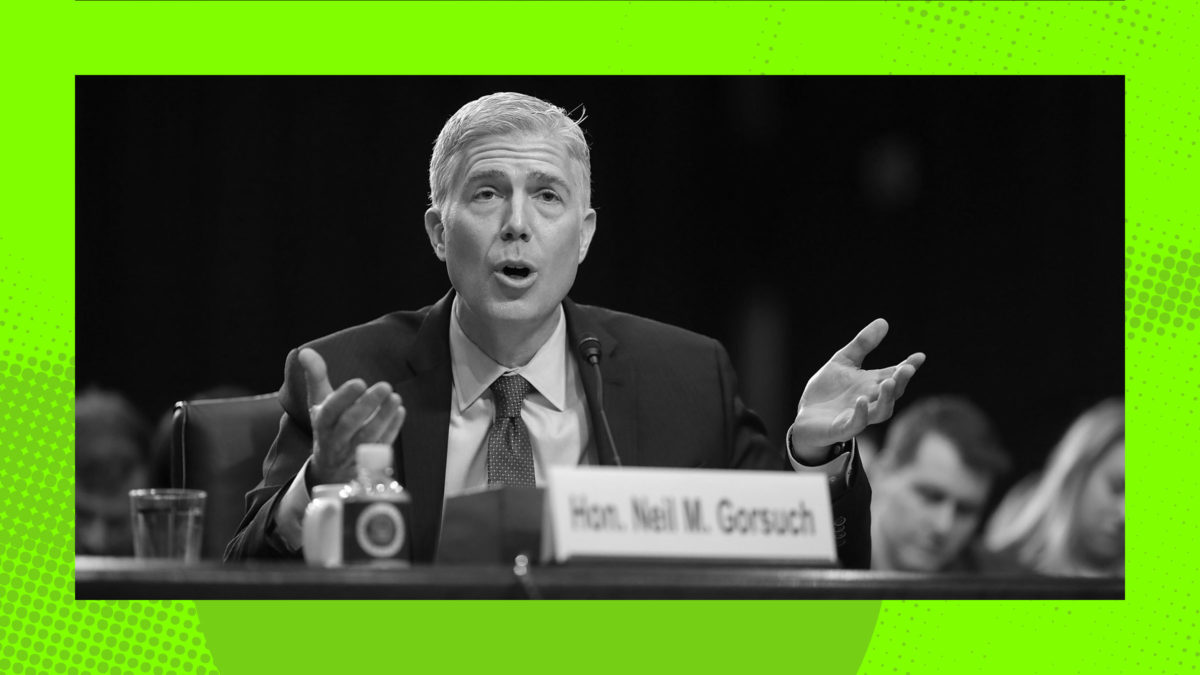Federal administrative agencies impact basically all aspects of American life. Congress tasks them with regulating everything from fair housing and labor practices to the safety of the food we eat, the water we drink, and the air we breathe. And for decades, courts have generally deferred to those agencies to do the jobs that Congress assigned to them, so long as the agencies act “reasonably.” If the Food and Drug Administration says its authority to regulate food safety means it can tell companies to include protein in baby formula, no problem. If the FDA says it can tell companies to include babies in baby formula, that’s a problem.
But next week, the Supreme Court is hearing oral argument in Loper Bright v. Raimondo and a related case, Relentless v. Department of Commerce, which the justices could use to upset this decades-long balance and destabilize how the government functions. Behind this attack on the administrative state are corporations that resent the burden of regulations, because cutting corners means more cash. And ending courts’ deference to reasonable agency interpretations of their mandates could make those regulations unworkable.
Loper Bright Enterprises is a company with a permit to fish in the Atlantic herring fishery, a designated area of the ocean for harvesting herring. In 1976, after massive overfishing drove ecologically important habitats and fishing companies alike to the brink of collapse, Congress passed a law authorizing an executive agency to administer a national fishery management program. Effective fishery management depends on reliable data, and to get that data, the National Marine Fisheries Service (NMFS) made a rule requiring commercial fishers to pay for third-party monitors to join them on their vessels. Loper Bright challenged the rule, claiming that it costs them about $710 per inspector per day. “Congress did not silently empower the National Marine Fisheries Service to require herring fishermen to cede 20% of their annual returns to pay the salaries of government monitors,” the company, represented by conservative superlawyer Paul Clement, wrote in its petition for certiorari.
Loper lost at both the district court level and on appeal because of a foundational administrative law Supreme Court case called Chevron v. NRDC. Under Chevron, if Congress makes an agency responsible for administering a law and the intent of the law is ambiguous, courts ask if the agency’s interpretation of its delegated power is “reasonable.” If an agency is acting reasonably, courts defer to the experts’ judgment rather than substituting their own. In Loper Bright’s case, the courts below found that the agency’s interpretation of the law was indeed reasonable—that the NMFS can make fishing companies help foot the bill for inspectors—so they let the rule stand. Loper Bright has now appealed to the Supreme Court, with an army of corporate interests backing it up in amicus briefs, arguing that the Court should overrule Chevron entirely.
Although Loper Bright v. Raimondo looks like a case about fishery management, it’s actually about the conservative legal movement’s white whale: taking down the administrative state, and gutting the government’s ability to rein in corporate greed. Chevron deference is key to efficient government regulation. A Supreme Court decision that hamstrings agency regulation will further free megacorporations to maximize profit at the expense of the public.

“What’s so bad about a little acid in rain?”–Gorsuch, after shutting down the EPA, probably
Under current law, agency experts have the flexibility to implement and refine Congress’s directives, working out the nitty-gritty of applying broad legislative instructions to specific circumstances as they arise—while remaining subject to oversight from every branch of government. Administrative agencies have institutional and technical competencies that legislators lack, so Congress draws lines and allows agencies to color within them. It’s great for Congress to pass a law about air quality, for instance, but when it comes to actually determining stuff like the maximum allowable eight-hour ozone concentration, I would prefer for scientists to take the lead over Lauren Boebert. Overruling Chevron would transfer decision-making authority away from those experts and to Republican-captured courts.
Republicans have been gunning for administrative agencies for decades, and appointing judges they trust to do the same. Justice Clarence Thomas, who once supported agency deference, has changed his mind as he’s gotten closer to the Koch network that opposes it. And Justice Neil Gorsuch has described Chevron deference as “judicial abdication” of the courts’ responsibilities. With a supermajority of Republican appointees on the Court, Chevron is the most vulnerable it’s been since it was decided 40 years ago.
Chevron’s critics claim to oppose the doctrine because of separation of powers concerns, claiming that executive agencies exercise legislative power without meaningful judicial oversight. But Chevron works as Schoolhouse Rock tells you laws are supposed to work: Congress makes a law, the executive branch executes the law, and judges review if they’re acting unreasonably. Without Chevron, instead of enforcing Congress’s statutory delegation of limited discretion, each judge would be able to make their own interpretation of a statute and force agencies to administer the same law in many different ways depending on the district—and the judge’s policy preference. As bad as Lauren Boebert would be at making scientific determinations about airborne poisons, Sam Alito wouldn’t be any better.
The conservative legal movement is open about its deregulatory agenda. But because of agency regulations, the country has fewer workplace injuries, fewer children with lead poisoning, and fewer food illness fatalities. It has safer roads and cleaner water. If conservatives have their way, Loper Bright could restrict the government from doing this kind of necessary work, and co-opt the courts in service of unabated exploitation of people and the planet.




